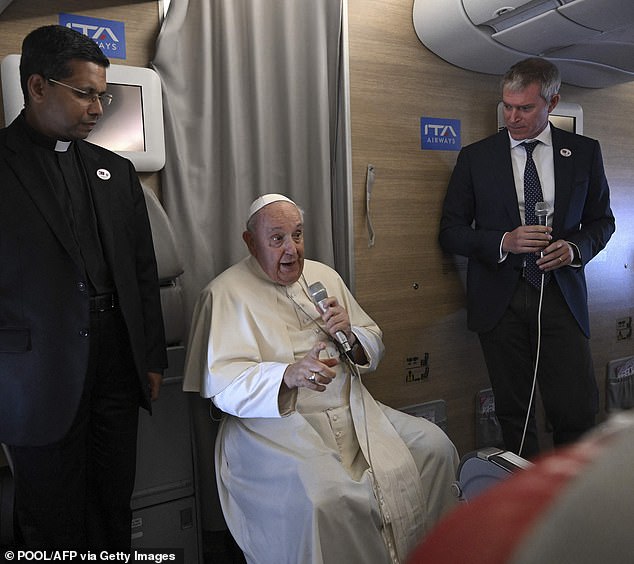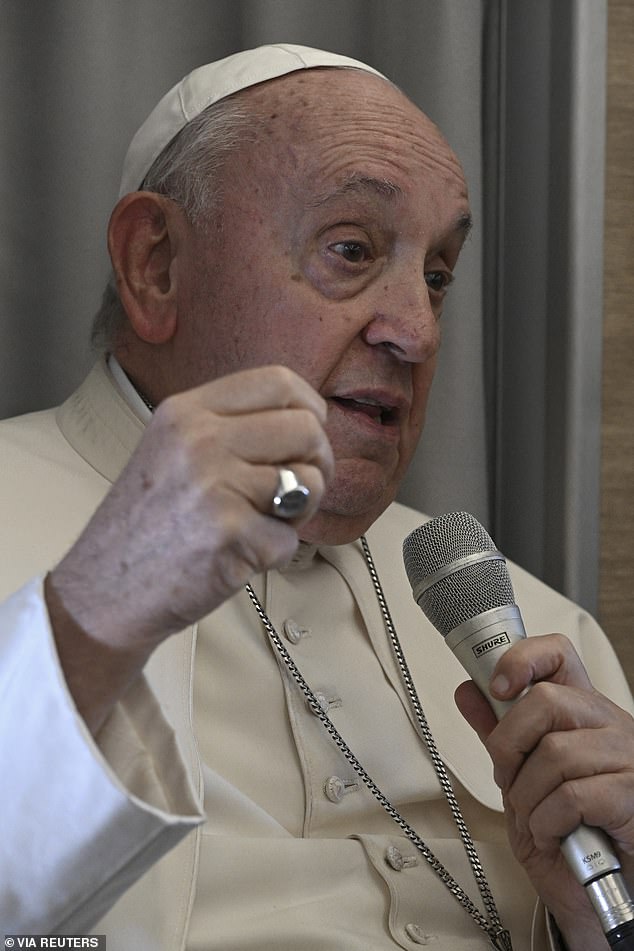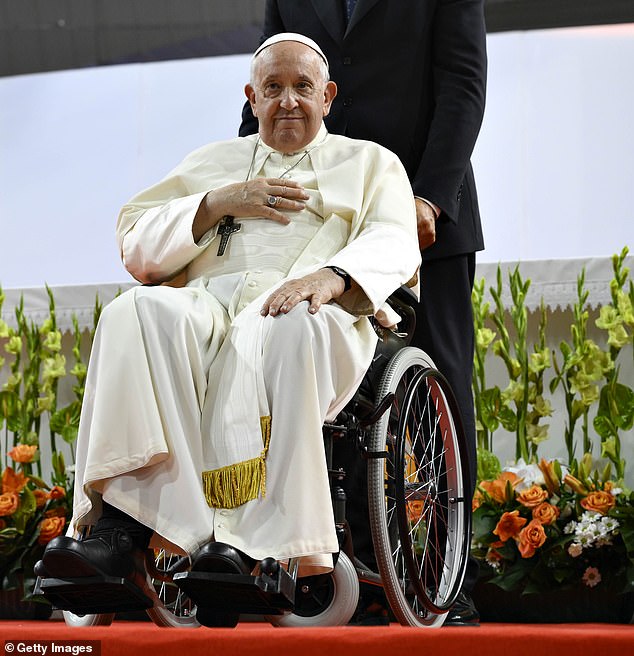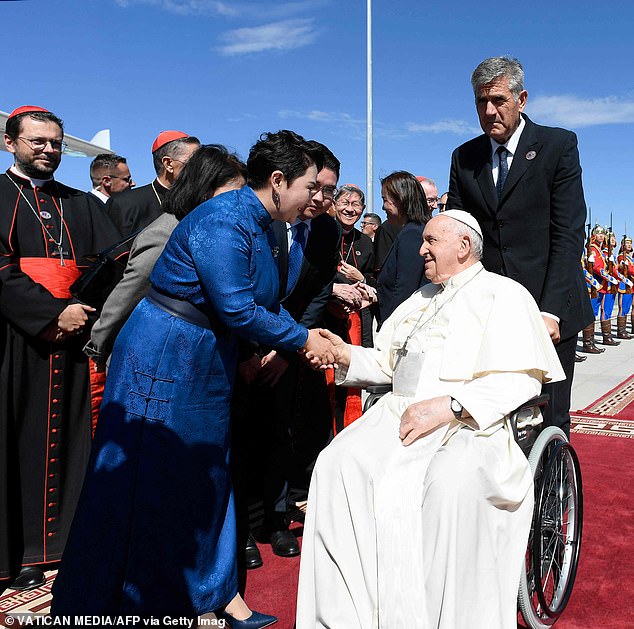Pope, 86, hints he may soon halt travelling abroad, saying it ‘is not as easy as it was’ as the ageing pontiff returns from Mongolia
Pope Francis hinted today that he could soon stop traveling abroad, as the 86-year-old pope admitted it “isn’t as easy as it was” when he took office a decade ago.
“I’ll tell you the truth: when I start traveling now, it’s not as easy as it was in the beginning. There are restrictions on walking,” the pope said when asked by reporters on his return from Mongolia – his 43rd tour of his papacy – what future official trips he envisioned.
His trip to Mongolia came just three months after he underwent a three-hour operation in Rome to remove intestinal scar tissue and repair a hernia in his abdominal wall.
The pope’s medical team had decided the surgery was necessary to treat a “recurrent, painful and progressively worsening” narrowing of the bowel.
The procedure came two years after Francis had a foot removed from his colon due to inflammation and narrowing of the colon.
Pope Francis said on Monday that papal travel wasn’t as easy as it used to be, as the 86-year-old pope completed the 43rd trip of his decade-long papacy.

Pope Francis attends Monday’s press conference with accredited journalists on their return flight from Mongolia

Pope Francis speaks at a press conference aboard the papal plane on his flight back from a visit to Mongolia on Monday
During his visit to Mongolia, the elderly pope stressed that the Vatican’s relations with China were going well, but said work still needs to be done to show Beijing that the Catholic Church is not dependent on a foreign power.
The 86-year-old ventured to the vast, isolated Central Asian country as a gesture of support for the small Catholic community, but the trip was overshadowed by apparent overtures to Beijing, which the Vatican has struggled to push through for years.
“Relations with China are very respectful, very. I have great admiration for the Chinese people,” the pope told reporters on his flight home.
He added: “I think we need to move forward on the religious side to better understand each other.
“So Chinese citizens don’t think that the Church does not accept their own culture, their own values, and that the Church represents another foreign power.”
He also addressed the Chinese people directly – some of whom attended a Sunday mass, on pilgrimages not approved by Beijing – telling them to be “good Christians and good citizens.”
Francis, in the 11th year of his pontificate, is eager to make progress for the Catholic Church in China, where a controversial 2018 agreement last year gave both Beijing and the Vatican a say in electing cardinals.
But an invitation to visit from Beijing has yet to come, and Francis suggested on Monday, as he concluded the 43rd tour of his papacy, that future travel could be restricted.
“I’ll tell you the truth: when I start traveling now, it’s not as easy as it was in the beginning. There are restrictions on walking,” he said when asked what official visits he envisioned.
The pope underwent hernia surgery in June and is dependent on a wheelchair or cane due to knee pain. In Mongolia he walked unsteadily and often looked tired.

Pope Francis attends a mass at the Hun Theater in a wheelchair on September 3

Pictured: Pope Francis shakes hands with Mongolian Foreign Minister Batmunkh Battsetseg as he sits in a wheelchair before leaving the country on Monday
The pope has been plagued with health problems since childhood, following the complications of a serious ailment he contracted in his twenties.
When he was 21, he developed pleurisy, an inflammation of the tissue between the lungs and ribcage.
The condition was so severe that he nearly died and doctors were forced to remove several lung cysts and a small portion of his upper right lung, according to Pope biographer Austen Ivereigh.
A lengthy recovery process followed, which affected his voice; he is often heard in little more than a whisper.
The pope said he had made a full recovery from the pleurisy, but his reduced lung capacity puts him at greater risk for chronic respiratory disease.
The Argentine pope also suffers from sciatic nerve pain.
He was hospitalized in March this year with pneumonia after struggling to breathe during his weekly general audience at the Vatican. He appeared on April 1 and said, “Still alive!”
Asked about his health in an interview with US Spanish-language network Telemundo that aired in May, Francis said it was “much better.”
‘I can walk now. My knee is recovering. I could barely walk beforehand. Now I can. Some days are more painful than others,” the pope said.
Francis added that doctors had caught his respiratory infection just in time.
“If we had waited a few more hours, it would have been much more serious. But I was out of the hospital in four days,” he said.
